Newsletter 14 Feb 2022
Environment: What’s Up in GENeva | 14 – 20 February 2022

The Geneva Environment Network’s weekly newsletter includes the latest information on the global environmental agenda, main events, job vacancies, as well as other useful resources and updates. Stay tuned and follow us also on Twitter, Facebook, LinkedIn, Youtube, or visit our website regularly for additional updates.
Due to the developments in the sanitary situation, various institutions in Geneva continue operating virtually. Our update on COVID-19 and the environment lists relevant information, research, data, and press releases on the environmental origins and impacts of the pandemic.
Image of the week © UN Photo | Second session of the Preparatory Committee for Stockholm Conference on Human Environment | Palais des Nations, 8 February 1971 | Geneva and its surrounding area have been active in global environmental governance for more than 50 years. Important and strategic historical meetings have taken place in the region → Visit Environment in Geneva.
Ambition for the United Nations Environment Assembly
Two weeks ahead of the resumed fifth session of the United Nations Environment Assembly (UNEA-5.2), the Geneva Environment Network invites delegates and stakeholders from the Geneva community and beyond to take part in the UNEA-5.2 High-Level Preparatory Briefing, on Monday 14 February at 13.00 CET. The event will provide an update on the President of the Assembly’s priorities and preparations for the segment. → Register and join us online!
Last week, the plenary session of the Online Global Major Groups and Stakeholders Forum adopted a joint MGS Statement on “The UNEP We Want” and reviewed a Global Joint Statement, both of which will be forwarded to UNEA-5.2 after a final round of revisions by a representative task force. The latter statement clarifies the position of MGS with regards to the draft resolutions proposed at UNEA-5.2. The draft resolution on Nature-based Solutions elicited lengthy discussions, and resulted in the forum neither endorsing nor rejecting the resolution. Consult the Earth Negotiations Bulletin for additional information or join our briefing.
Find out more on the events in preparation of UNEA in our update Towards UNEA-5.2.
Momentum Towards an International Instrument Addressing the Full Lifecycle of Plastics
The momentum for the establishment of a global instrument on plastic pollution is growing, with more governments announcing their support, and civil society and the scientific community voicing their concerns over the impacts on people and planet, and calling for action. A synthetic overview of the major milestones in the run-up to UNEA-5.2 and reflections on the next steps is provided in CIEL’s latest article on the topic “Momentum Towards an International Instrument on Plastics: Update Ahead of UNEA 5.2“.
At the One Ocean Summit, last week:
- The United States and Canada announced supporting the launch of negotiations at UNEA-5.2 on a global agreement to address the full lifecycle of plastics and promote a circular economy. The Republic of Korea announced co-sponsoring the draft resolution on the legally binding instrument on plastic pollution.
- The European Bank for Reconstruction and Development (EBRD) joined the European Investment Bank (EIB) and the development banks of France (AFD), Germany (KfW), Italy (CDP) and Spain (ICO), in an important initiative for the reduction of plastic pollution at sea, the Clean Oceans Initiative, which decided to raise its target to provide €4 billion of financing by the end of 2025, instead of the €2 billion initially expected to be reached by 2023.
- Eleven new governments, including Greece, Italy, Colombia, the Republic of Korea, the City of Paris and Central Greece joined the New Plastics Economy Global Commitment, led by the Ellen MacArthur Foundation, in collaboration with the UN Environment Programme.
- India and France launched an initiative on the elimination of single-use plastic pollution, which aims to be multilateral.
At an event hosted by the World Economic Forum, last week, and moderated by UNEA President, H.E. Espen Barth Eide, the Vice-Minister of Mobility of the Ministry of Foreign Affairs of Ecuador, H.E. Luis Vayas Valdivieso, said that the multilateral system is ready to do its part. Governments need to work together, with other stakeholders. To combat plastic pollution we will require the 5 Cs: coordination, collaboration, cooperation, concessions, and compromises.
Additionally, a series of new publications have come out over the past days, highlighting the urgency of taking action at the global level to halt the leakage of plastics and microplastics into the environment.
- Stricter controls on chemical and plastic shipping are needed | IPEN | 8 February 2022
This case study focused on the largest plastic pellet spill on record revealed the dire impacts on people and the environment of toxic chemicals released from the sinking of the X-Press Pearl in May 2021. The authors conclude that the risks associated with the transport of chemicals and plastics in ever-larger container ships need to be addressed urgently. - Ocean plastic pollution to quadruple by 2050, pushing more areas to exceed ecologically dangerous threshold of microplastic concentration | WWF | 8 February 2022
This new review of over 2,590 studies provides the most comprehensive analysis to-date of the alarming impact and scale of plastic pollution on ocean species and ecosystems. It reveals that projected growth of plastic pollution is likely to result in many areas suffering significant ecological risks harming current efforts at protecting and increasing biodiversity if action is not taken now to cut global production and use of plastic. Exceeding these ecologically dangerous thresholds of microplastic pollution could lead to adverse effects on species and ecosystems including reduced populations. - Plastic Paints the Environment | Environmental Action | 9 February 2022
This report provides a global assessment of the level of plastic paint leakage worldwide, an issue which has been largely overlooked so far. It points out that paint appears to be the largest source of microplastic leakage into the ocean and waterways (1.9 Mt per year), outweighing all other sources of microplastic leakage including textiles fibres and tyre dust.
Climate Change: Impacts, Adaptation and Vulnerability
This week, the Intergovernmental Panel on Climate Change (IPCC) begins the approval session to consider the Working Group II contribution to the Sixth Assessment Report, looking at impacts, adaptation and vulnerability to climate change. The contribution will be released at the end of the month, and stakeholders are preparing various events to bring the outcomes in various fora. Stay tuned!
What (Else) Should I Read Next?
- Brest Commitments for the Oceans | Republic of France | 11 February 2022
Commitments made at the One Ocean Summit, held in Brest from 9 to 11 February 2022, which brought together 41 States and representatives of civil society and businesses, in a milestone of the French Presidency of the Council of the European Union. - Five Urgent Needs for Global Governance: UN Secretary-General Sets Priorities for 2022 | IISD | 3 February 2022
Addressing the UN General Assembly (UNGA) on 21 January 2022, UN Secretary-General Antonio Guterres urged Member States to take foster better global governance to make progress and “rescue” the 2030 Agenda and the SDGs. Among the major issues to be addressed, Guterres highlighted the need for ambitious climate action to collectively deliver the 45% emissions reduction needed by 2030. - Situation analysis on the roles and risks of wildlife in the emergence of human infectious diseases | IUCN | 2022
This situation analysis presents a thorough, evidence-based examination of the relationship between wildlife and zoonosis, wildlife and emerging human pathogens and associated diseases, their origins, drivers, and risk factors. The report highlights key knowledge, and provides perspective on where research, policy, interventions, and capacity building are needed to reduce risks of zoonoses and emergent animal-origin human diseases globally. - Failure to prevent pandemics at source is ‘greatest folly’, say scientists | The Guardian | 4 February 2022
New scientific study published in Science Advances provides additional evidence of the great benefit of wildlife protection to prevent future zoonotic pandemics. Indeed, stopping the destruction of nature, which brings humans and wildlife into greater contact and results in spillover, would cost a small fraction of the damage already caused by viruses that jump from wildlife to people. - Côte d’Ivoire announces theme of the UN Conference on land it is hosting | UNCCD | 9 February 2022
Côte d’Ivoire has unveiled the logo and announced the theme of the upcoming 15th Conference of the Parties to the UN Convention to Combat Desertification, which will be held on 9 – 20 May 2022 in Abidjan. The theme, ‘Land. Life. Legacy: From scarcity to prosperity’ is a call to action to ensure land, the lifeline on this planet, continues to benefit present and future generations. - The Great Climate Backslide: How Governments Are Regressing Worldwide | Bloomberg News | 11 February 2022
Despite a short slump due to the pandemic, global greenhouse gas emissions are on the rise again, and governmental action around the global is lacking in comparison to the efforts needed to remain under the 1.5°C target fixed by the Paris Agreement. - More stringent controls of heavy metal emissions enter into force in the UNECE region | UNECE | 7 February 2022
New milestone to control heavy metal pollution with the entry into force of amendments to the 1998 Aarhus Protocol on Heavy Metals, adopted in 2012. The amended protocol requires 24 Parties in Europe and North America to take measures to prevent and minimize emissions of cadmium, lead and mercury, by regulating combustion and industrial processes as predominant anthropogenic sources of their emissions, in line with the precautionary approach. - Reconciling Conservation and Global Biodiversity Goals with Community Land Rights in Asia | Twenty Indigenous and Local Community Organizations across Asia | 7 February 2022
This report frames conservation beyond being an issue of natural resource management and highlights the question of governance, autonomy, and sovereignty of Indigenous Peoples and local communities to achieve their self-determined development aspirations. It brings together data and stories from communities on the ground to re-position global human rights and conservation discourses at the center of Asia’s unique political realities. - Women and Girls in Environment Science | Geneva Environment Network | 11 February 2022
Last Friday, the global community celebrated the International Day of Women and Girls in Science, which theme focused on the role of women and girls as agents of change for accelerating progress towards the achievement of SDG 6 (Clean Water and Sanitation). On this occasion, we celebrate the women experts from the Geneva community who contributes to science around environmental, water and climate issues.
Events
See all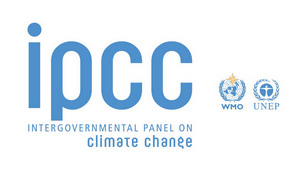
Body Meeting
55th Session of the IPCC (IPCC-55) and WGII AR6 Approval Plenary (WGII-12)
14 – 25 Feb 2022
Online
IPCC

Virtual
High-Level Briefing on the Second Segment of the 5th Session of the United Nations Environment Assembly | GENeva UNEA-5.2 Briefing
14 Feb 2022 13:00 – 14:00
Online | Webex
GEN
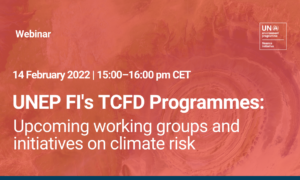
Virtual
UNEP FI’S TCFD Programmes: Upcoming working groups and initiatives on climate risk
14 Feb 2022 15:00 – 16:00
Online
UNEP FI
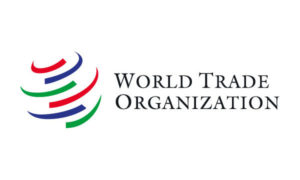
Body Meeting
Informal Open-ended Negotiating Group on Rules (Fisheries Subsidies) — Informal Meeting
15 Feb 2022 10:00
Online & WTO CR
WTO

Virtual
Treating Mercury Wastes: Tools and Technologies Webinar
15 Feb 2022 13:00 – 14:30
Online
UNEP Global Mercury Partnership
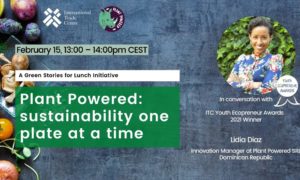
Virtual
Green Stories for Lunch: Sustainability, one plate at a time
15 Feb 2022 13:00 – 14:00
Online | Zoom
ITC

Virtuel
Report Launch: practical approaches to applying the EU taxonomy to bank lending
15 Feb 2022 14:00 – 15:00
Online
UNEP FI

Virtual
Building the traceability of sustainable value chains across the two continents with support of blockchain technology at the 7th EU-Africa Business Forum 2022
15 Feb 2022 14:30 – 15:15
Online
UNECE
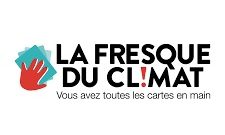
Workshop
Climate Fresk Training
15 Feb 2022 16:00 – 19:00
Espace de Concertation 3DD, 3, Rue David-Dufour, Genève
Association la Fresque du climat

Virtual
Understanding the role of protected areas as nature-based solutions: Part I
16 Feb 2022 14:00
Online
IUCN

Virtual
Sustainable Blue Finance: from guidance to practice
17 Feb 2022 10:00 – 11:15
Online
UNEP FI

Virtual
Digital Technologies and the Environment: a Synergy for the Future
17 Feb 2022 15:00 – 15:45
Online
Diplo, Konrad Adenauer Foundation
Jobs
See all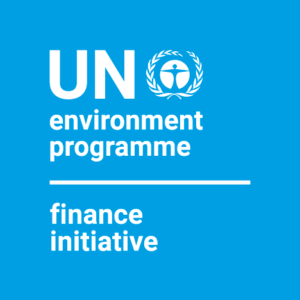

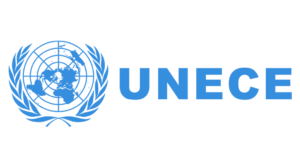
Consultant
Individual contractor for UNECE Sustainable Transport Division IT projects
14 Feb 2022
UNECE
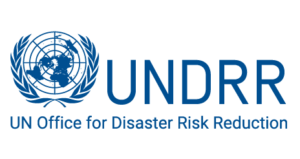
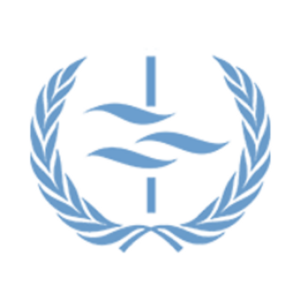
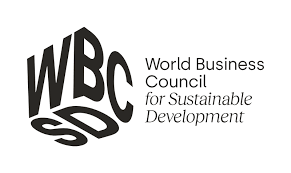
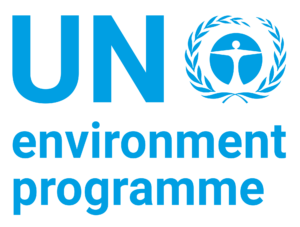







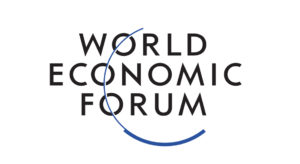


Consultant
Principles for Responsible Banking Implementation Support Coordinator
28 Feb 2022
UNEP FI

Updates
See all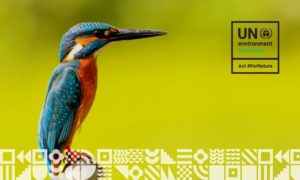
19 Apr 2022
Towards UNEA-5.2
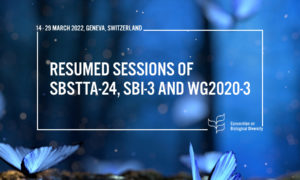


11 Feb 2022
Women and Girls in Environmental Science
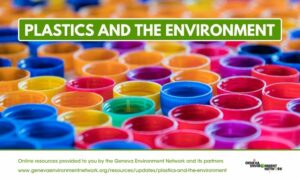
18 Apr 2024
Plastics and the Environment
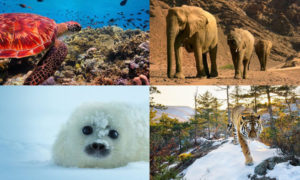
28 Feb 2022
